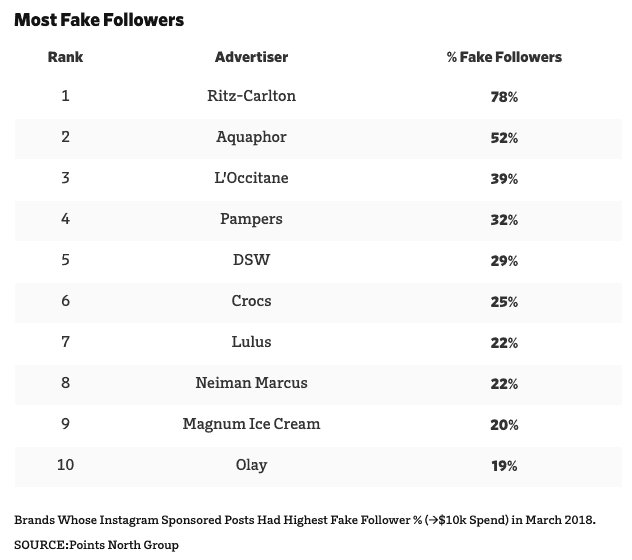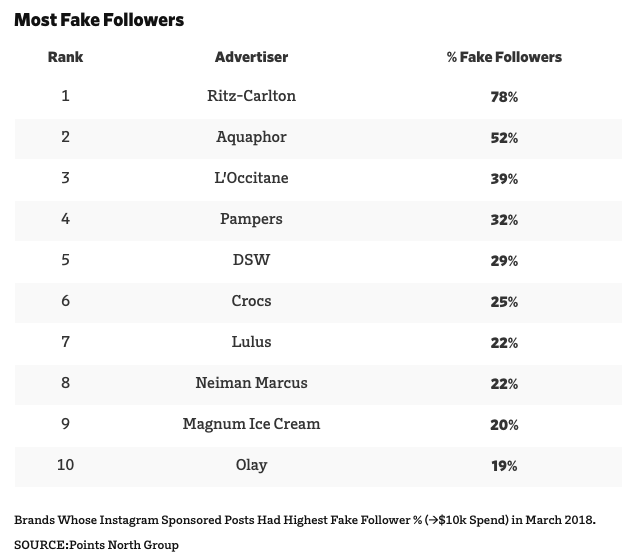If you’re a major brand, it’s understandably tempting to hire an influencer with hundreds of thousands of followers to promote your product. But if a majority of those followers are bots, then that investment is nothing but a waste of money. But now that Instagram is cracking down, it may come as a surprise to find that plenty of brands are still paying for social media influencers with inflated followings. According to a study conducted by Points North Group, Ritz-Carlton and Aquaphor had the highest percentage of fake followers for their sponsored posts. The unfortunate reality is that brands need to be extra diligent when vetting influencers. Per BuzzFeed, there’s now a paid service called Fuelgram that automatically likes and comments on other posts from legitimate accounts. It’s essentially a performance-enhancing steroid, resulting in a lot of duplicate, emoji-ridden engagement: “I really love this photo!” and “I like the colors used in this photo! .” While Fuelgram comments sound like something that brands would want to steer clear of, brands like Kroger and Aquaphor (Aquaphor again!) Assuming that influencers understand the ethical concerns of fake followers and the consequences should Instagram find out, why are they still using them? As Silicon Valley marketing exec Guy Kawasaki said, “There are two kinds of people on social networks: Those who want more followers, and those who are lying.” Influencers are only as strong as the amount of people who trust them.
If you’re a major brand, it’s understandably tempting to hire an influencer with hundreds of thousands of followers to promote your product. But if a majority of those followers are bots, then that investment is nothing but a waste of money.
The issue of fake followers isn’t new. Ever since social media clout became a barometer of influence, users have benefited from bots. But now that Instagram is cracking down, it may come as a surprise to find that plenty of brands are still paying for social media influencers with inflated followings.
According to a study conducted by Points North Group, Ritz-Carlton and Aquaphor had the highest percentage of fake followers for their sponsored posts.

The unfortunate reality is that brands…

COMMENTS